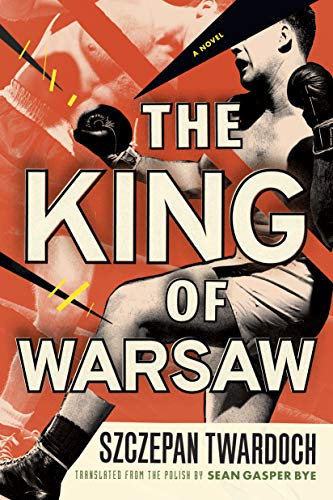The King of Warsaw
Imagine a Polish, Jewish Godfather.
Imagine one more brutal, more alien, more complex, eerier, and better written than Mario Puzo’s 1969 blockbuster. Like its gangster antihero, The King of Warsaw seizes you by the throat (or beard) and drags you off to a very bad place.
It’s a terrible novel in the root sense of the word: it stands your hair on end. This tough thriller is the first English publication of the Polish writer Szczepan Twardoch (well translated by Sean Gasper Bye), but it won’t be the last.
Set in 1937—when Warsaw had a (90 percent doomed) Jewish population larger than any other city in the world except New York—the novel hurls us into a lively criminal world where enforcement is executed by the handsome, charismatic Jakub Szapiro, a champion boxer and professional killer who stands second in line for the criminal throne of Warsaw. Szapiro is tattooed with a double-edged sword and “death” in Hebrew.
The unspeakable horrors of World War II may lie ahead, but this is no book for the fainthearted. Hitler’s shadow looms over ethnic conflict, red Cadillacs, exquisitely tailored suits, pastry oozing rose-hip jelly, deadly weapons, cash, kinky sex, cocaine, vodka, and much blood.
Twardoch insists his novel is not about prewar Warsaw but about violence. It’s about both, but it’s about much more as well. It’s about evil. It’s about identity, both personal and national. It’s about doppelgängers, monsters, sperm whales, hapless Jonahs, and the Book of Job.
For aesthetic brutality Twardoch has been compared to Cormac McCarthy, but the unputdownable Stieg Larssen is probably closer kin. As is Twardoch’s great fellow Pole and fellow explorer of the heart of darkness, Joseph Conrad.










